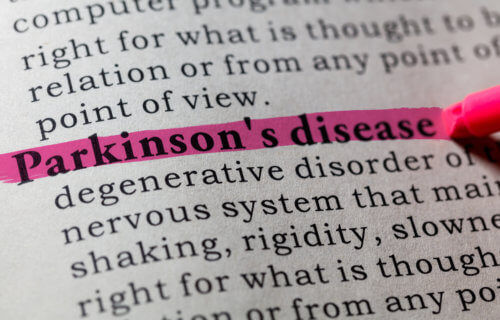KAUNAS, Lithuania — One of the first signs of Parkinson’s disease to watch out for is a change in speech, according to Lithuanian researchers. Currently, there is no cure for Parkinson’s, but early intervention could help manage the neurological disease.
Parkinson’s affects over 10 million people worldwide. The most noticeable symptoms are a loss of motor function, with patients commonly experiencing hand tremors, muscle stiffness, and problems with balance. According to the new study, however, these symptoms manifest after Parkinson’s disease is already in a more advanced stage.
The team at Kaunas University of Technology (KTU) focused their attention on changes in vocal speech as a possible early indicator of Parkinson’s onset. Past research on other motor function disorders has found that altered speech often occurs before other symptoms appear.
The study used artificial intelligence to analyze speech patterns of people speaking the Lithuanian language. Participants entered a soundproof booth where a microphone recorded the speech of people with and without Parkinson’s. The algorithm listened to the speech and “learned” to perform signaling processing.
Their results show that people with early-stage Parkinson’s disease tend to speak more quietly and in a monotonous, slower, and more fragmented manner. The change can be subtle at first and hard to detect with the human ear. As the disease progresses, however, a patient’s speech becomes more impaired with more noticeable stuttering, slurred pronunciation of words, and the loss of pauses between words.
Scientists could create an app that checks for altered speech
Lithuanian researchers developed a system to detect the changes earlier, although they caution that it’s too soon to replace routine diagnostic tests with their system.
“We are not creating a substitute for a routine examination of the patient – our method is designed to facilitate early diagnosis of the disease and to track the effectiveness of treatment,” says Rytis Maskeliūnas, a researcher from the Kaunas University of Technology, in a university release.
As technology advances, the algorithm that detects altered speech could become more refined and sensitive.
“So far, our approach is able to distinguish Parkinson’s from healthy people using a speech sample. This algorithm is also more accurate than previously proposed,” explains Kipras Pribuišis, lecturer at the Department of Ear, Nose, and Throat at the Lithuanian University of Health Sciences faculty of medicine.
According to the researchers, the algorithm requires no complicated hardware and become part of a future mobile app.
The next step the study authors are taking is adding more patients to their experiments. With more data, the algorithm will continue to learn different human speech patterns and detect signs of Parkinson’s much sooner. Another consideration they are taking is whether the algorithm would work in real-time at a doctor’s office or a patient’s home instead of a lab.
The study is published in the journal Applied Sciences.

